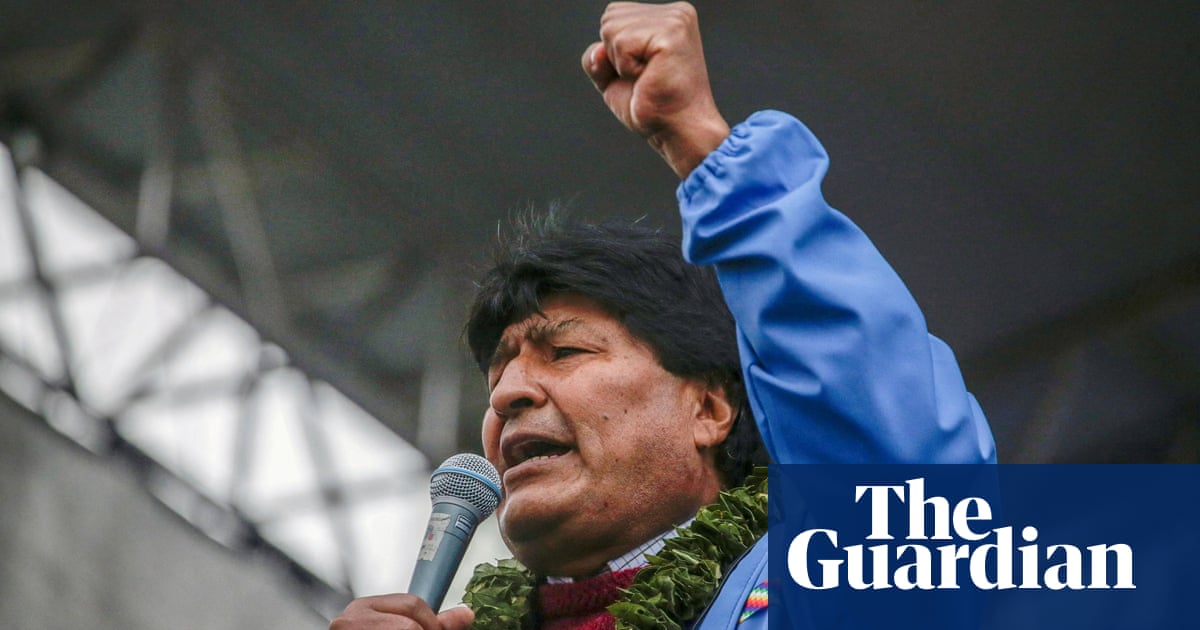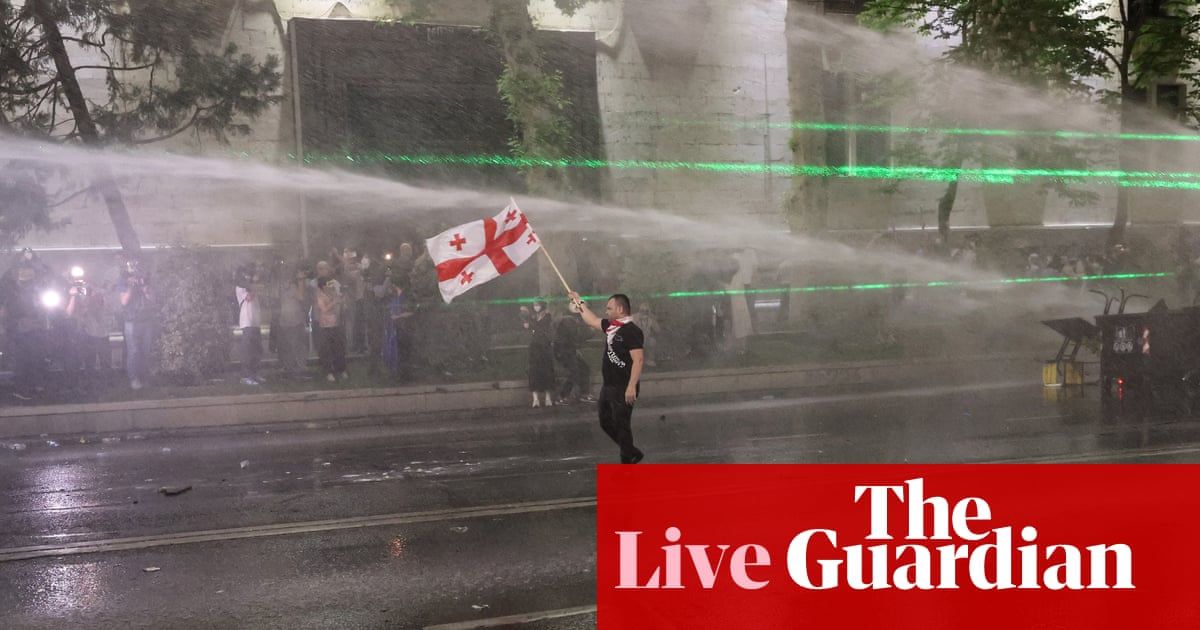
Peru has barred Bolivia’s former president Evo Morales from entering the country, as it accuses foreign interests of stirring up deadly protests in support of the imprisoned former president Pedro Castillo.
Peru has seen weeks of violent unrest following last month’s removal from power of Castillo, who was arrested on 7 December after attempting to dissolve congress in an attempt to avert his impeachment trial.
On Tuesday, 17 more protesters were killed by security forces, bring the number of dead to almost 40.
Morales has been vocal in his support of Castillo, another leftist who came to prominence through campesino organisations, and has denounced his arrest as illegal, both on Twitter and in trips to Peru.
In a statement issued by Peru’s new government, led by President Dina Boluarte, Morales and eight other Bolivians were on Monday accused of carrying out political activities in the country, in violation of immigration laws.
Morales, however, has cast the events in in Peru as the latest in a string of “coups” by rightwing forces across the continent, including Cristina Fernández de Kirchner’s recent corruption conviction in Argentina, and his own ouster in 2019, when he resigned after a contested election, mass opposition protests and the army’s suggestion he do so.
Some leftwing governments, including Bolivia, Mexico, Argentina and Colombia, have also criticised the Castillo’s arrest and called for his reinstatement.
Morales responded to the travel ban on Twitter, saying it was meant to distract from “the human rights abuses being committed against our Peruvian brothers”.
This is not the first time that Morales has drawn controversy for his activities in southern Peru, which he and his former ministers made a habit of visiting after Castillo came to power in July 2021.
In the region of Peru that borders Bolivia and also sits on Lake Titicaca, much of the population is indigenous and Aymara or Quechua-speaking. In some ways it has more in common with the adjacent Bolivian highlands than with urban areas such as Lima, the Peruvian capital.
Just as Morales remains an influential figure among campesino organisations in Bolivia, so he is in these parts of Peru.
While Castillo was in power, Morales made various trips to Cusco, the one-time capital of the Inca empire, apparently to promote Runasur, a new organisation for Latin American social movements that he recently established.
A meeting of Runasur was planned for December 2021 in the city of Cusco, with Morales invited as a special guest.
But the event was suspended amid a growing wave of coronavirus infections, and after Morales was declared persona non grata by Peru’s congress for his perceived political interference.
In recent days, Peruvian politicians have again accused Morales of using Runasur to promote separatism in southern Peru.
The most recent deadly protests took place in Juliaca, a city on the edge of Lake Titicaca. Protesters are demanding Boluarte’s resignation, Castillo’s release and the shuttering of Congress.
Referencing them in a tweet, Morales wrote: “The heartlands of Peru have awoken.”












